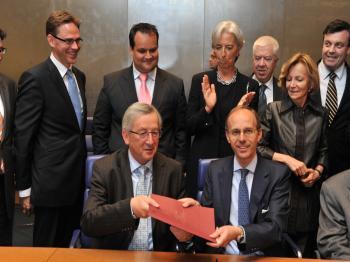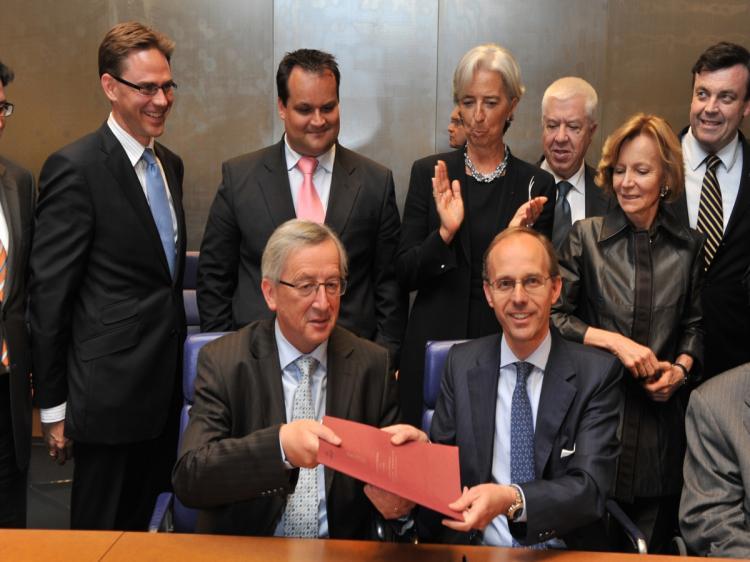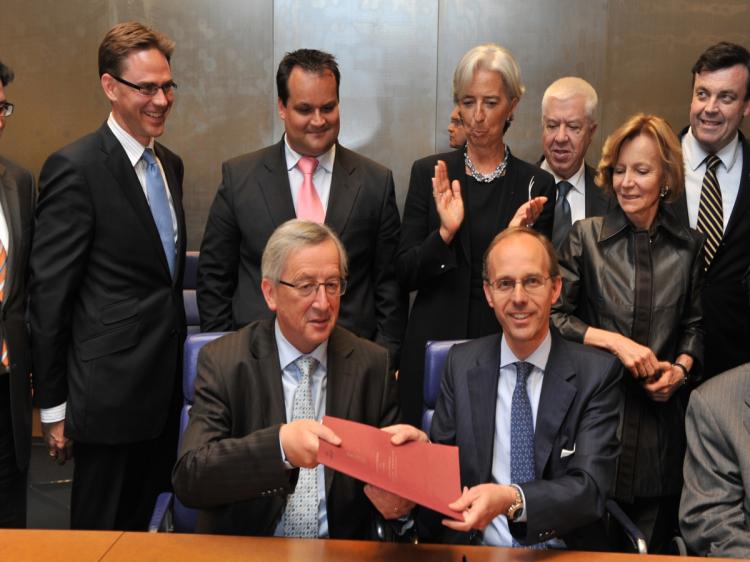The International Monetary Fund (IMF) predicts more financial instability within the eurozone owing to state budget deficits and their impact on the banking sector, says an IMF report released Thursday.
The hefty deficits carried by some European countries, particularly Greece, have had a large impact on bank financing, according to the report. Analysts say that this has resulted in a decline in credit activities in Europe.
Meanwhile the world economy expanded at an annualized rate of over 5 percent during the first quarter of 2010, mostly due to robust growth in Asia, the report says.
“While we remain cautiously optimistic about the pace of recovery, there are clearly dangers ahead,” Olivier Blanchard, the IMF’s chief economist, said in a press release.
“How Europe deals with fiscal and financial problems, how advanced countries proceed with fiscal consolidation, and how emerging market countries rebalance their economies, will determine the outcome,” said Blanchard.
Some European countries have already agreed on austerity measures to slash their budget deficits. However, many of the tools did not find public support leading to large-scale protests over the last several months, particularly in Greece, France, Spain, and Romania.
The IMF decreased its forecast for the U.K.’s GDP growth because of the government’s severe plans to cut 11 percent from the budget deficit, bringing it down to zero within five years. Britain’s GDP is predicted to grow by 1.2 percent this year.
The fund says that the main task for governments going forward is to restore confidence in financial markets without damaging the growth of the economy.
IMF economists claim that the consequences of the EU debt crisis for the world financial system could be the same as after the Lehman Brothers default in 2008.
Analysts are calling on governments to concentrate their efforts on improving their economic situation, but warn them against too radical measures to cut budget expenses.
The hefty deficits carried by some European countries, particularly Greece, have had a large impact on bank financing, according to the report. Analysts say that this has resulted in a decline in credit activities in Europe.
Meanwhile the world economy expanded at an annualized rate of over 5 percent during the first quarter of 2010, mostly due to robust growth in Asia, the report says.
“While we remain cautiously optimistic about the pace of recovery, there are clearly dangers ahead,” Olivier Blanchard, the IMF’s chief economist, said in a press release.
“How Europe deals with fiscal and financial problems, how advanced countries proceed with fiscal consolidation, and how emerging market countries rebalance their economies, will determine the outcome,” said Blanchard.
Some European countries have already agreed on austerity measures to slash their budget deficits. However, many of the tools did not find public support leading to large-scale protests over the last several months, particularly in Greece, France, Spain, and Romania.
The IMF decreased its forecast for the U.K.’s GDP growth because of the government’s severe plans to cut 11 percent from the budget deficit, bringing it down to zero within five years. Britain’s GDP is predicted to grow by 1.2 percent this year.
The fund says that the main task for governments going forward is to restore confidence in financial markets without damaging the growth of the economy.
IMF economists claim that the consequences of the EU debt crisis for the world financial system could be the same as after the Lehman Brothers default in 2008.
Analysts are calling on governments to concentrate their efforts on improving their economic situation, but warn them against too radical measures to cut budget expenses.






